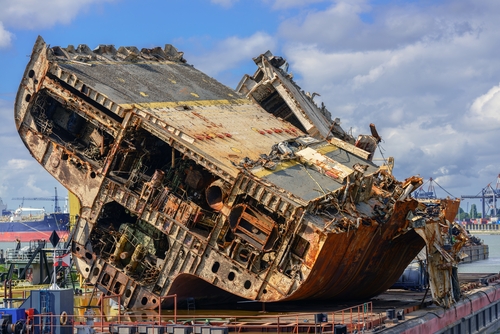NGO Shipbreaking Platform has raised alarm over that fact that just weeks before the Hong Kong Convention (HKC) for the Safe and Environmentally Sound Recycling of Ships is set to take effect on 26 June, a worker died at Alang, the world’s largest shipbreaking yard.
As reported by NGO Shipbreaking Platform, on 20 May, a 20-year-old helper fell to his death while dismantling a vessel without a safety harness. He had been assigned to remove furniture from the ship’s seventh level, a dangerous task typically performed by untrained and unprotected workers.
The vessel was reflagged to St. Kitts and Nevis before being scrapped in Alang. This tactic, according to the NGO, allowed the ship’s beneficial owner to bypass international safety and environmental regulations in pursuit of higher profits.
Despite growing international scrutiny, hazardous and exploitative working conditions remain common in Alang, where ships are dismantled directly on tidal mudflats. Critics, including the NGO Shipbreaking Platform, argue that the HKC’s weak provisions risk legitimising such practices rather than reforming them.
As informed, over the past five years, at least ten workers have died under similar conditions in Alang, exposing deep-rooted issues in a sector driven by opaque ownership structures and minimal accountability.
If global shipping powers like South Korea are serious about sustainability and accountability, they must invest in domestic recycling capacity and end exploitative shipbreaking practices abroad. International policy makers need to furthermore ensure effective enforcement of the Basel Convention which currently provides the highest level of protection for both the environment and workers
… said Ingvild Jenssen – Executive Director & Founder – NGO Shipbreaking Platform































































